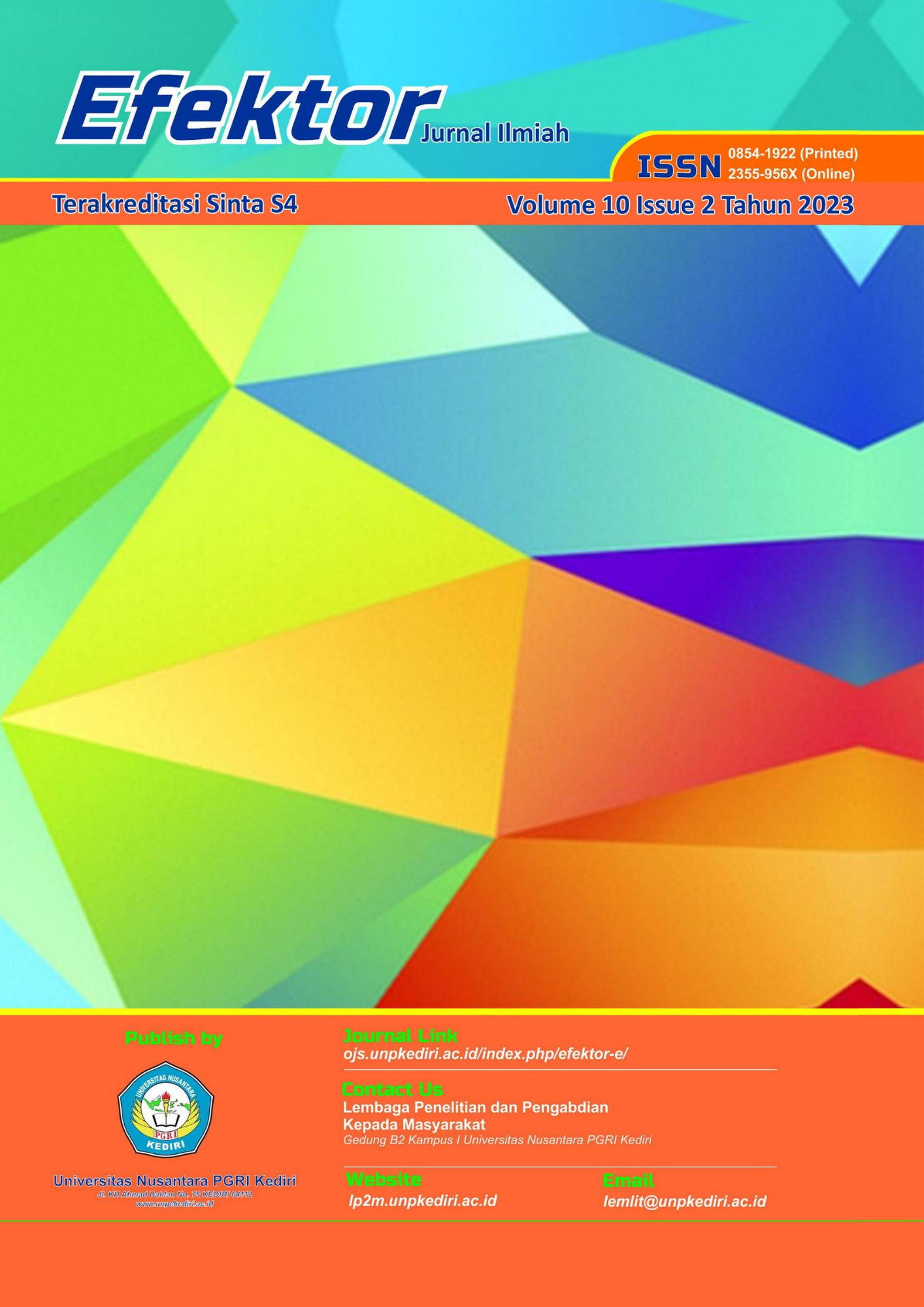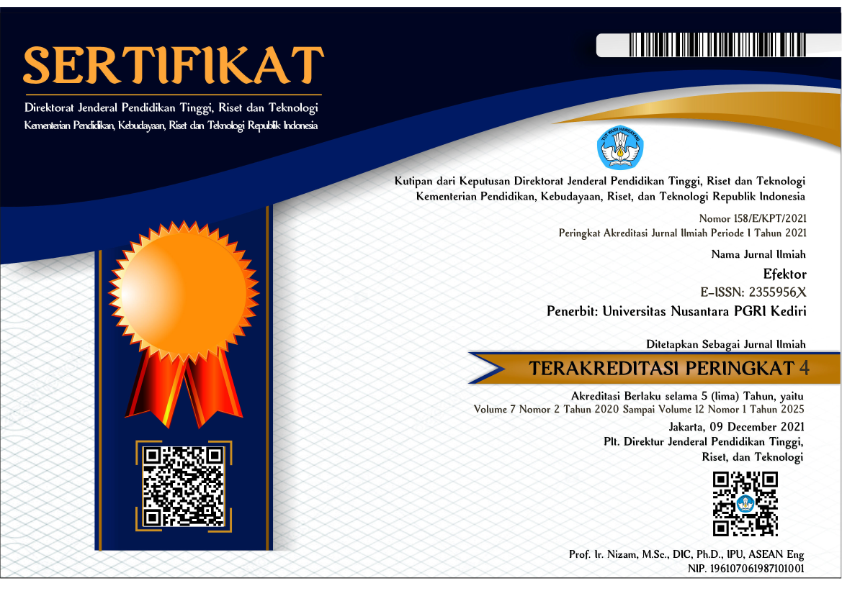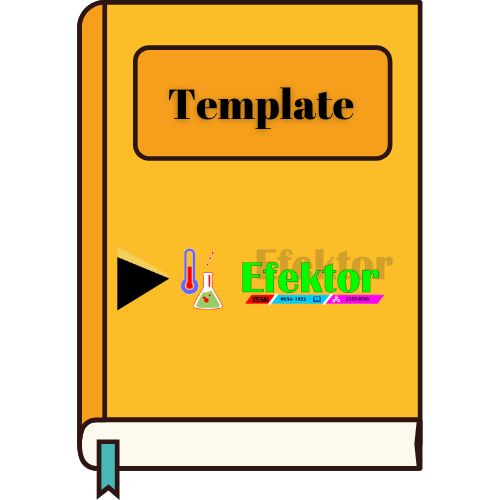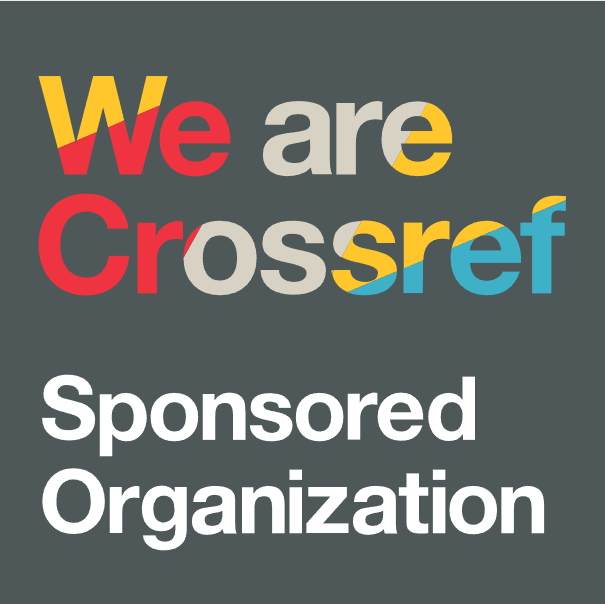Identifikasi Konsep Merdeka Belajar Guru Smk Di Kota/Kabupaten Kediri Sebagai Bahan Refleksi Dalam Pelaksanaan Pembelajaran Kurikulum Merdeka
Identification of the Concept of Merdeka Belajar for Smk Teachers in Kediri City / District As Reflection Material in the Implementation of Independent Curriculum Learning
DOI:
https://doi.org/10.29407/e.v10i2.20310Abstract
Abstract
Merdeka Belajar is a policy that aims to provide schools flexibility in planning, implementing and evaluating educational programs, with reference the principles of Merdeka Belajar policy set by the central government. The concept of Merdeka Belajar demands a change in the teacher's paradigm. This article discusses the results of Merdeka Belajar identification owned by teachers as material for reflection in Kurikulum Merdeka implementation. Concepts identification include: 1). moving level as a diagnosis of change drivers, 2). strategy and scope of learning, 3). Merdeka Belajar, 4). and leader style. This research method is survey research with 1,939 teachers as respondents at Kota/Kabupaten Kediri. Data collection was carried out by implementing an internet-based survey. The survey results show that the majority of teachers (45.1%) are at the mobile level 2, namely having an agenda to move, but requiring consistency. Teacher's understanding of strategy and learning 72.4%. The lowest implementation of Merdeka Belajar is learning reflection (81.2%). The "guard" leadership style (56.5%) is the majority leadership style. Information about the concept of Merdeka Belajar teachers at Kota/Kabupaten Kediri will be used as material for reflection as a growth mindset in the implementation of Kurikulum Merdeka.
References
Badan Standar, Kurikulum, dan Asesmen Pendidikan (BSKAP). (2022). Panduan pembelajaran dan asesmen Kurikulum 2013.
Babbie, E. (2007). The practice of social research. 11th ed. Belmont, CA: Wadsmorth/Thomson.
Brock, Annie & Hundley, Heather. (2018). Komunikasi efektif untuk mindset tumbuh. Tangerang Selatan: Penerbit BACA.
Creswell, John W and Creswell, J. David. (2018). Research design: qualitative, quantitative, and mixed methods approaches. Fifth Edition. Los Angels: SAGE
Data Pokok Pendidikan. (2022). Diunduh dari https://dapo.kemdikbud.go.id/guru/2/056300.
Dahar, Ratna Wilis. (2011). Teori-teori belajar. Cetakan ke-14. Jakarta: Penerbit Erlangga.
Dweck, Carol S. (2006). Mindset: The new psychology of success. New York: Ballantine Books.
Everett M. Rogers. (1983). Diffusion of innovations. London: The Free Press.
House, Robeth. J. (1971). A path goal theory of leader effectiveness. Administrative science quarterly. Vol. 16, No. 3.
Ivancevich, dkk. (2007). Perilaku dan manajemen organisasi. Jakarta: Erlangga.
Karamooz, Mojgan & Narafsan, Mehry Haddad. (2017). The relationship between self-regulated strategies & burnout: A teacher analysis in the EFL context of Iran. Studies in linguistics literature, 1(2), 186-196.
Kementerian Pendidikan dan Kebudayaan (Kemendikbud). (2002a). Buku saku merdeka belajar: Prinsip dan implementasi pada jenjang pendidikan SMA.
Kementerian Pendidikan dan Kebudayaan (Kemendikbud). (2022b). Buku saku tanya jawab Kurikulum Merdeka.
Kurikulum Merdeka: Keleluasaan Pendidik dan Pembelajaran Berkualitas. (2022). Diunduh dari https://kurikulum.kemdikbud.go.id/kurikulum-merdeka/.
Mahmud, N. (2010). Learning to plan: An investigation of Malaysian student teacher’s lesson planning during their practicum (Tesis tidak diterbitkan), University of East Anglia.
Morissan M., A., dkk. 2012. Metode penelitian survei. Jakarta: Kencana.
Nesbary, D. K. (2000). Pragmatatism: From Peirce to Davidson. Boulder, CO: Westview.
Sekretariat GTK. (2022). Cerita-cerita perubahan dari guru penggerak. Direktorat Jenderal Guru dan Tenaga Kependidikan. Diunduh dari https://gtk.kemdikbud.go.id/read-news/ceritacerita-perubahan-dari-guru-penggerak
Pendidikan Penggerak Merdeka Belajar. (2022). Diunduh dari sekolah.mu
Sue, V. M., & Ritter, L. A. (2007). Conducting online surveys. Thousand Oaks, CA: Sage.
Downloads
Published
Issue
Section
License
Copyright (c) 2023 Efektor

This work is licensed under a Creative Commons Attribution-ShareAlike 4.0 International License.
Authors who publish with this journal agree to the following terms:
- Copyright on any article is retained by the author(s).
- The author grants the journal, the right of first publication with the work simultaneously licensed under a Creative Commons Attribution License that allows others to share the work with an acknowledgment of the work’s authorship and initial publication in this journal.
- Authors are able to enter into separate, additional contractual arrangements for the non-exclusive distribution of the journal’s published version of the work (e.g., post it to an institutional repository or publish it in a book), with an acknowledgment of its initial publication in this journal.
- Authors are permitted and encouraged to post their work online (e.g., in institutional repositories or on their website) prior to and during the submission process, as it can lead to productive exchanges, as well as earlier and greater citation of published work.
- The article and any associated published material is distributed under the Creative Commons Attribution-ShareAlike 4.0 International License













